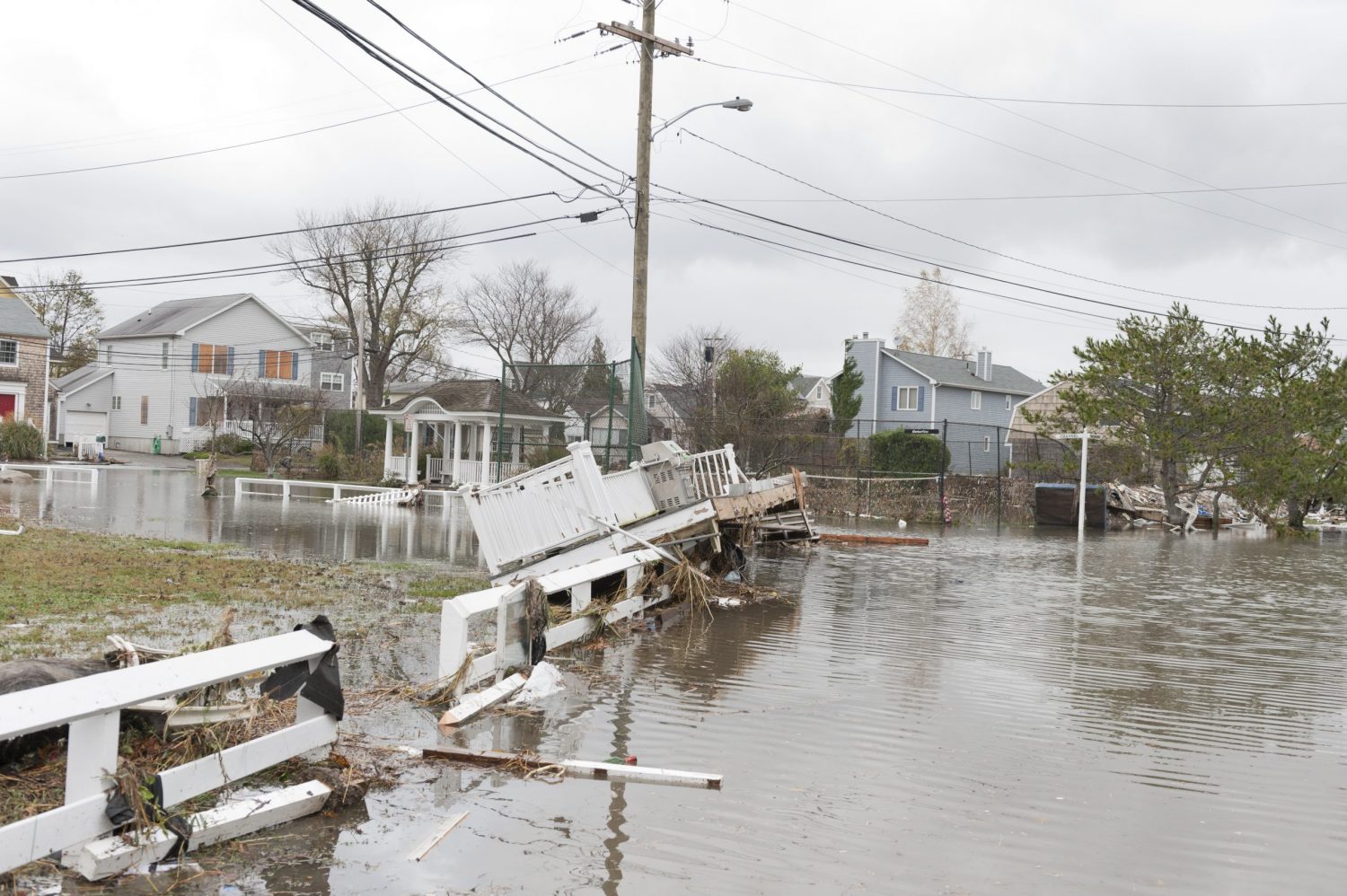Ready for Anything: Building Resilience Through Disaster Preparedness
From flooding and hail to hurricanes and drought, Connecticut has seen firsthand the toll disasters can take on farms, families, and communities. The old saying, “it’s not if, but when,” holds true: disasters will happen, and preparation is the best defense. Disaster preparedness builds resilience by reducing damage and speeding recovery. As natural disasters in the Northeast become more frequent and intense, proactive planning is more critical than ever.
UConn Extension, through the national Extension Disaster Education Network (EDEN), brings research-based knowledge to Connecticut farms, families, and municipalities. Extension efforts span farm resilience planning, food safety during power outages, preparedness checklists for households, and stormwater and shoreline management for towns. Across the state, Extension educators identify gaps in preparedness and partner with communities to fill them.
“UConn Extension’s ability to connect people throughout the state with the university’s expertise means we’re uniquely positioned to help people prepare and recover from severe weather events through our research-based education programs and services” says Amy Harder, associate dean for extension.
Preparedness protects lives and property, reduces economic losses, and strengthens community resilience. Research shows that planning ahead lowers injury and property damage, minimizes disruption, and cuts recovery costs. While preparing for the unknown isn’t always top of mind, it creates adaptive strategies that make individuals and communities stronger.
One of the first steps Extension professionals take is helping Connecticut audiences recognize that disasters have happened before and will happen again. Workshops, webinars, and fact sheets cover emergency planning, food safety during power outages, and farm resilience. Other team members collaborate with local municipalities, emergency services, and nonprofits to provide science-based resources that inform decision-making. Specialized support is available for farmers and agricultural businesses, families and youth, elderly residents, and urban communities.
On the Farm
Farmers are on the frontlines of disasters. In 2024 alone, Connecticut farms faced flooding, hail, and drought that wiped out crops and threatened livelihoods. Extension works year-round with farmers to prepare for disasters and reduce risk. For example, educators help vegetable farms prone to flooding plant water-tolerant crops, while advising others on drought-resistant varieties. Programs, fact sheets, and on-farm technical assistance strengthen farm infrastructure and resilience. After extreme weather, Extension helps farmers navigate disaster reporting and relief programs offered by state and federal agencies.
Seasonal checklists and fact sheets guide farm preparedness and mitigation. Some laminated checklists are even designed to hang in barns or high tunnels for easy reference during emergencies.
A grant-funded initiative, Biosecurity Education to Safeguard Animals and Fairs and Events (BE SAFE), bridges the gap between farms and residents. It equips animal exhibition organizers, exhibitors, and visitors with knowledge and tools to reduce the risk of disease transmission between humans and animals. The BE SAFE resource suite includes fact sheets, signage, and educational displays, while workshops train event personnel on best practices to keep both people and animals safe.
In Our Communities
Extension also supports residents and municipalities with a holistic approach to disaster preparedness. Efforts range from residential readiness and financial planning to municipal stormwater management, coastal living shorelines, and forestry practices that improve community resilience.
In Stamford, West Haven, and New London, another grant-funded project is filling a preparedness gap for older populations. Aging residents and their caregivers receive tailored training, instructions, and supplies to prepare for weather events. The pilot is informing a long-term model to support vulnerable populations in coastal communities.
Extension also provides accessible education for the general public. Fact sheets and videos offer on-demand learning, including disaster preparedness guides and an emergency supply kit video. Workshops and community events further expand awareness and action.
Preparedness starts at home, and every family can take simple steps to reduce risk:
- Create a Family Emergency Plan. Include communication strategies, evacuation routes, and meeting points.
- Build Emergency Kits. Stock at least 72 hours of food, water, medications, flashlights, and batteries.
- Stay Informed. Sign up for local alerts and weather notifications.
- Prepare Homes and Property. Maintain trees, secure outdoor items, consider backup power, and create a home inventory.
- Engage with Community Resources. Attend preparedness events, volunteer with Community Emergency Response Teams (CERT), and share resources with neighbors.
- Consider Vulnerable Populations. Plan for residents who may need extra help, and check in before and after major weather events.
Soon, UConn Extension will have even more resources available to Connecticut residents.
“This year, the USDA-NIFA approved a new UConn Extension program for disaster preparedness and recovery in Connecticut, enabling us to leverage federal resources and work with state and local partners to improve lives and outcomes when natural disasters happen,” says Harder.
Preparedness is a shared responsibility. By planning ahead and using available resources, farms, families, and communities can take the first steps toward resilience—and recover faster when the next disaster strikes.
Visit eden.uconn.edu for additional information and resources.
UConn Extension, located within UConn’s College of Agriculture, Health and Natural Resources (CAHNR) serves all 169 municipalities in Connecticut, and has eight statewide locations, in addition to the UConn Avery Point and Storrs campuses. With over 500 programs statewide, UConn Extension has almost 300,000 educational touchpoints with Connecticut residents each year. Extension professionals provide online courses and certificates to non-traditional learners and services to state and federal agencies and institutions.
Latest UConn Today
- UConn Expanding its Robust Residency ProgramsEastern Connecticut Health Network and Waterbury Health Join UConn School of Medicine’s Sponsored Residency Programs
- Lindsay DiStefano Appointed Interim Vice President for ResearchAppointment is effective October 3
- UConn Hosts New Fellowship Focused on Hydrogen in Shipping'REACH2 is our new UConn-led initiative that enables global collaboration in the field of hydrogen'
- Management Professor Offers Recommendations to Ease the Jolt of Strict Return-To-Office Policies'Focus on practices, not policies'
- Tech Showcase Celebrates UConn’s Economic, Innovative ImpactThe first-ever event connects Connecticut’s manufacturing roots with emerging technologies and industries
- Survey Asked Parents Whether They Consult with Doctor or Social Media Before Visiting ER'The hypothesis of the study was that younger parents would be more likely to use online health information and certain types of online health information as well'













